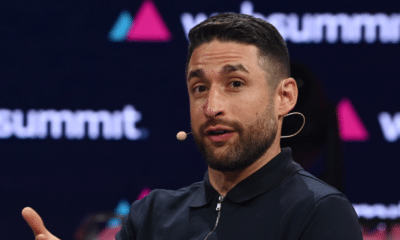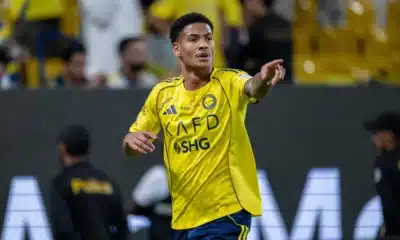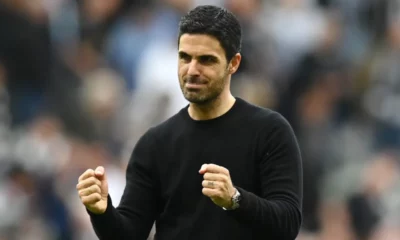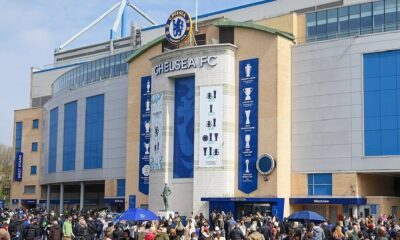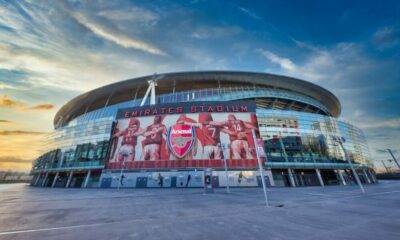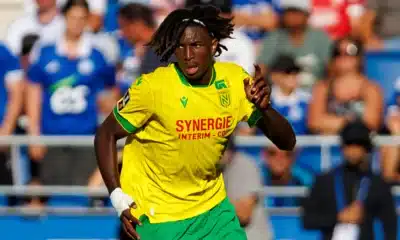Chelsea
Chelsea Manager Andre Villas-Boas – A Profile
Andre Villas-Boas has had a season he’ll certainly never forget. Leading FC Porto to an astonishing treble, the 33-year-old made his club the only European team in history to scoop a hat-trick of top titles for a second time. Not bad for someone who never played professional football.
He’s ambitious and meticulous in equal measure, and already his achievements are nothing short of extraordinary.
Under Villas-Boas’ stewardship, the Dragons collected the highest ever points tally in a 30-game Portuguese league season, getting their hands on the title with six weeks to spare. Draws against Guimaraes, Pacos de Ferreira and Sporting Lisbon were the only blotches on an otherwise impeccable copybook.
So where did it all begin? First to pick out Villas-Boas’ impressive zeal was the then-Porto coach Sir Bobby Robson, when the pair lived in the same apartment block in the mid-1990s. Although Robson brought the club silverware, as with any fervent supporter, Villas-Boas had some ideas of his own. Far too shy to approach Robson, he instead wrote down his feelings about the team’s tactics and went on to criticise Robson’s incessant refusal to start his cult hero, Domingos Paciencia.
One dropped letter into Robson’s post-box changed his life forever. Astounded by the youngster’s sound knowledge, Sir Bobby promptly hired the fresh-faced adolescent in an analytical role. Villas-Boas became a keen student at Robson’s school of football, and while there, became friends with his flashy interpreter, Jose Mourinho.
The pair re-united in 2002 when Mourinho landed the Porto job. Jose gave Villas-Boas a job as his opposition scout, and together helped Porto secure six trophies in a two-year stint, including Europe’s biggest prize: the Champions League.
Villas-Boas’ reputation was so highly regarded by the Special One that he retained the post at Chelsea, and then again at Internazionale.
Villas-Boas left Mourinho’s nest when he accepted the Academica hotseat in 2009. Make no mistake; this was a gamble that Villas-Boas didn’t have to take. After all, Inter had won both the Serie A and the Italian Super Cup the previous season.
But Villas-Boas wanted to test himself. Years of learning could only go so far, and Villas-Boas now sought his own project, which arrived soon enough at Academica.
Following Rogério Gonçalves’ resignation in October, Academica were bottom of the league and had yet to win a game. Villas-Boas quickly turned the team around, and the club finished the season ten points clear of relegation. In the same season, Porto failed to qualify for the Champions League after finishing third.
Targets had not been met, and Villas-Boas was appointed to replace outgoing manager Jesualdo Ferreira.
But giving him the biggest job in Portuguese football was a risk many didn’t want to take. He was inexperienced and too young to take charge of Porto, people said. Arguments now seem a tad out of tune now.
For Villas Boas’ team have not only gone on to rule domestically, but have also steamrollered their way through the Europa League. Putting five goals past both Spartak Moscow and Villarreal en route, Porto were ferocious in attack and combative in defence. Villas-Boas has created a monster.
And he’s outdone mentor Mourinho in the process. In 2003, Porto’s first treble winning season, Mourinho enjoyed just short of a 77per cent win ratio. Compare that to Villas Boas’ mesmerising 83per cent. Villas-Boas’ 36 matches unbeaten across all competitions have also surpassed Jose’s best efforts, where he could only muster 33.
So it came of no surprise when Europe’s top clubs came knocking. In Italy, Roma and Juventus were first out the blocks, but were instantly shot down. Chelsea’s first signs of intent soon followed before Inter were heavily linked this weekend. The stumbling block for most was the £13.2 million release clause. Step forward, as always when money is the issue, Roman Abramovich.
But what of the future? The 33-year-old has stated he doesn’t want to manage at the top level for more than a decade. Understandable considering the way that Villas-Boas truly immerses himself into the game’s analytical underworld. He knows that managing in such a pressurised environment does not draw parallels with a healthy lifestyle.
Working for Abramovich, then… perfect!
Submitted by Football Friends



